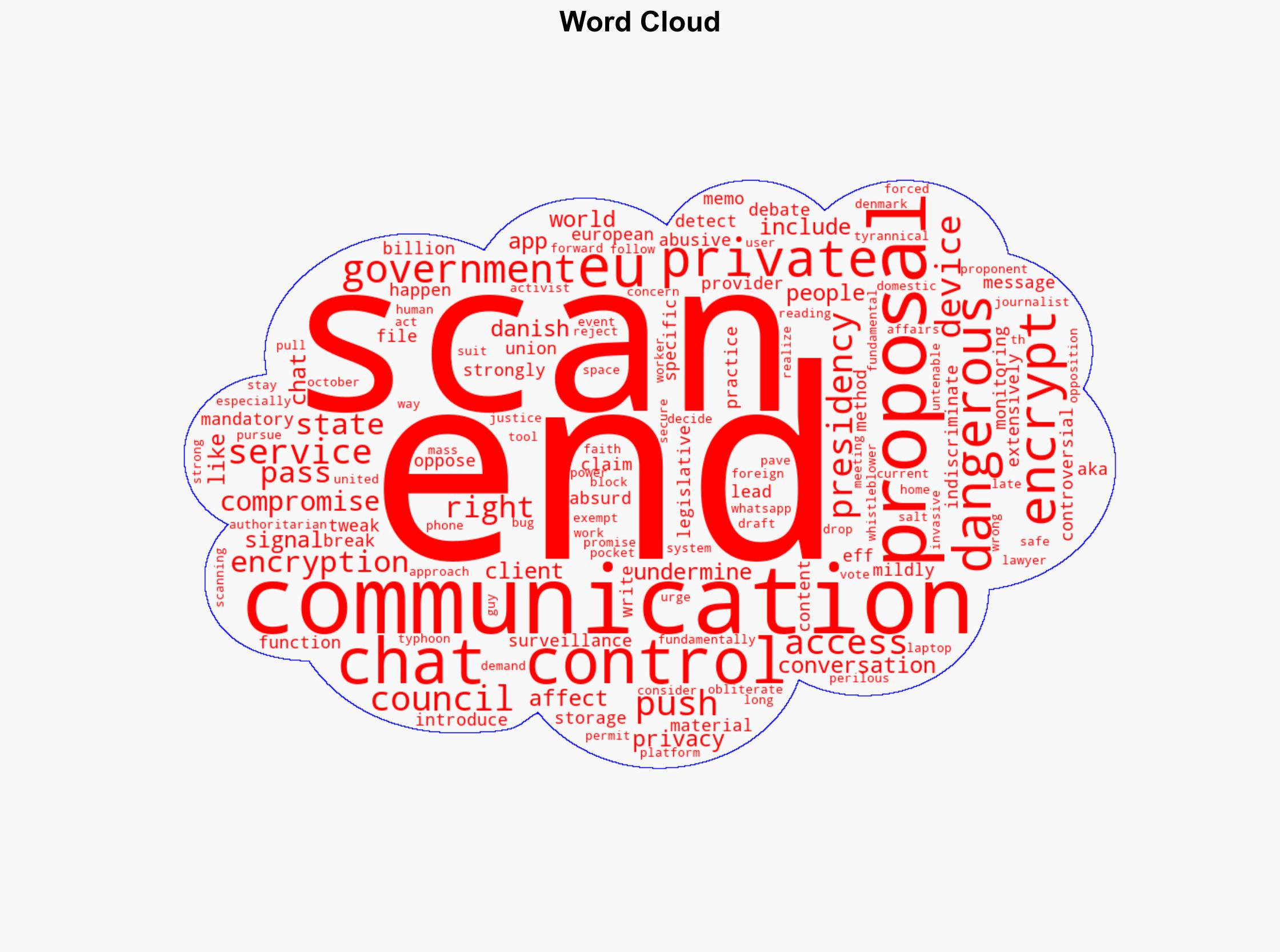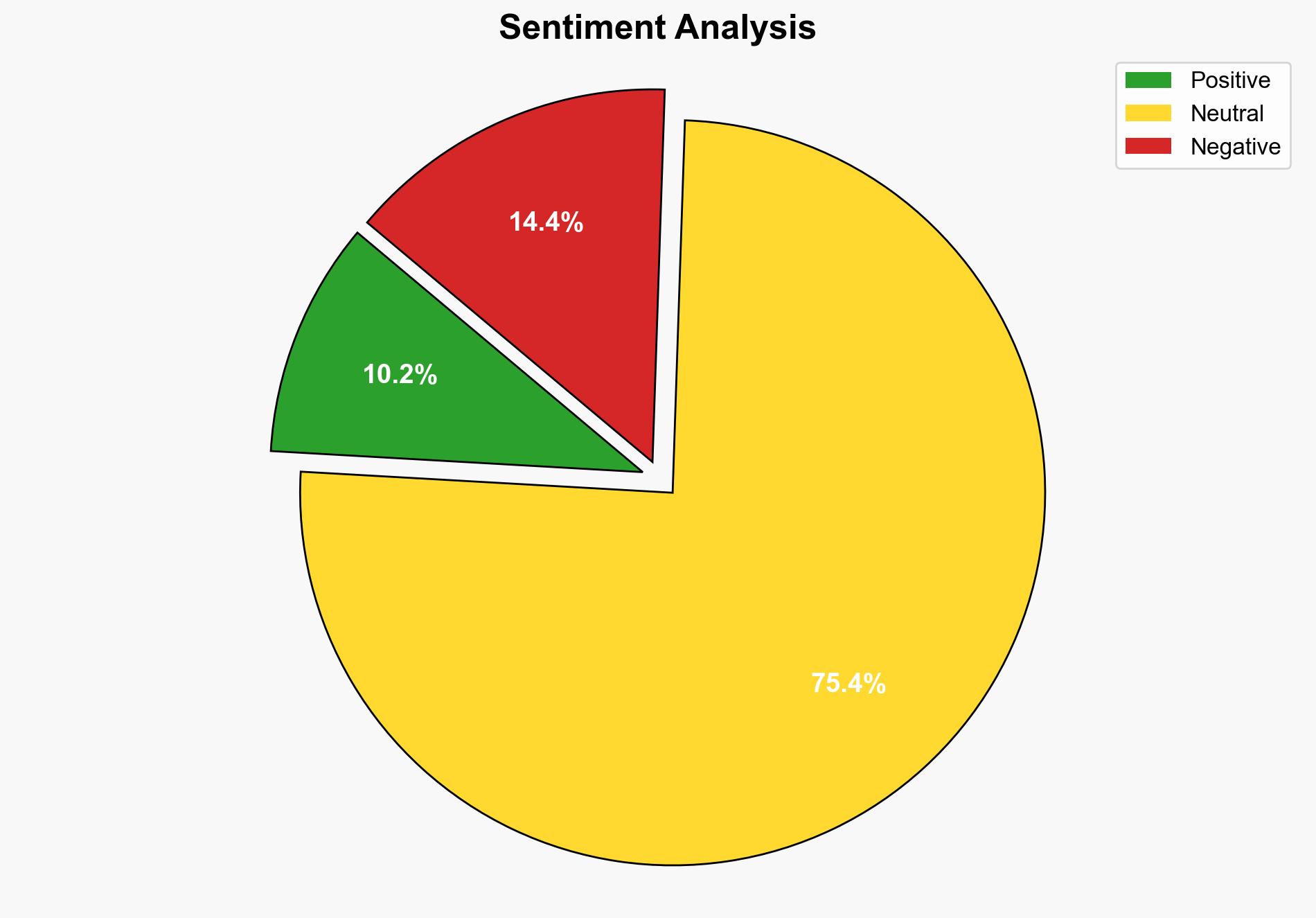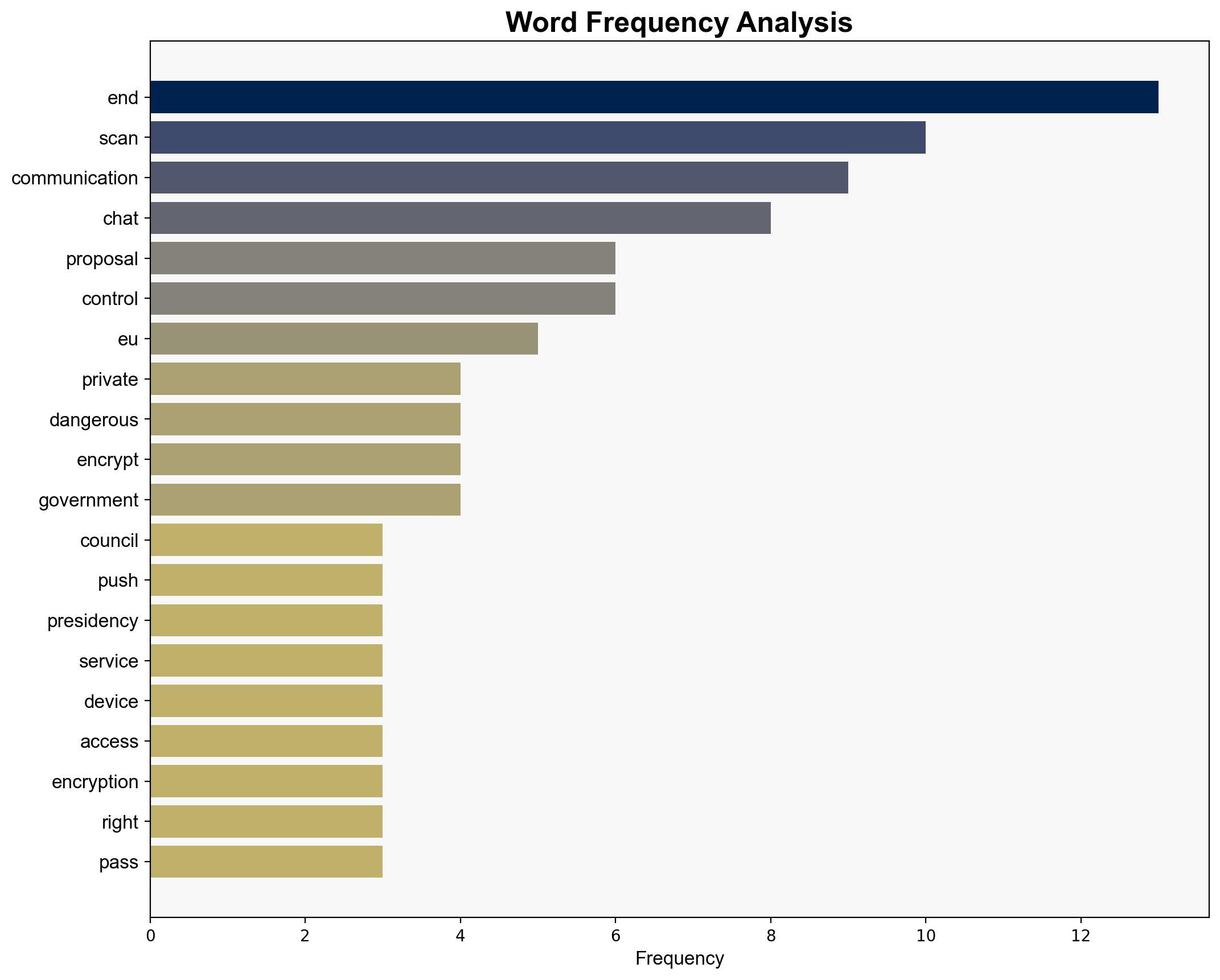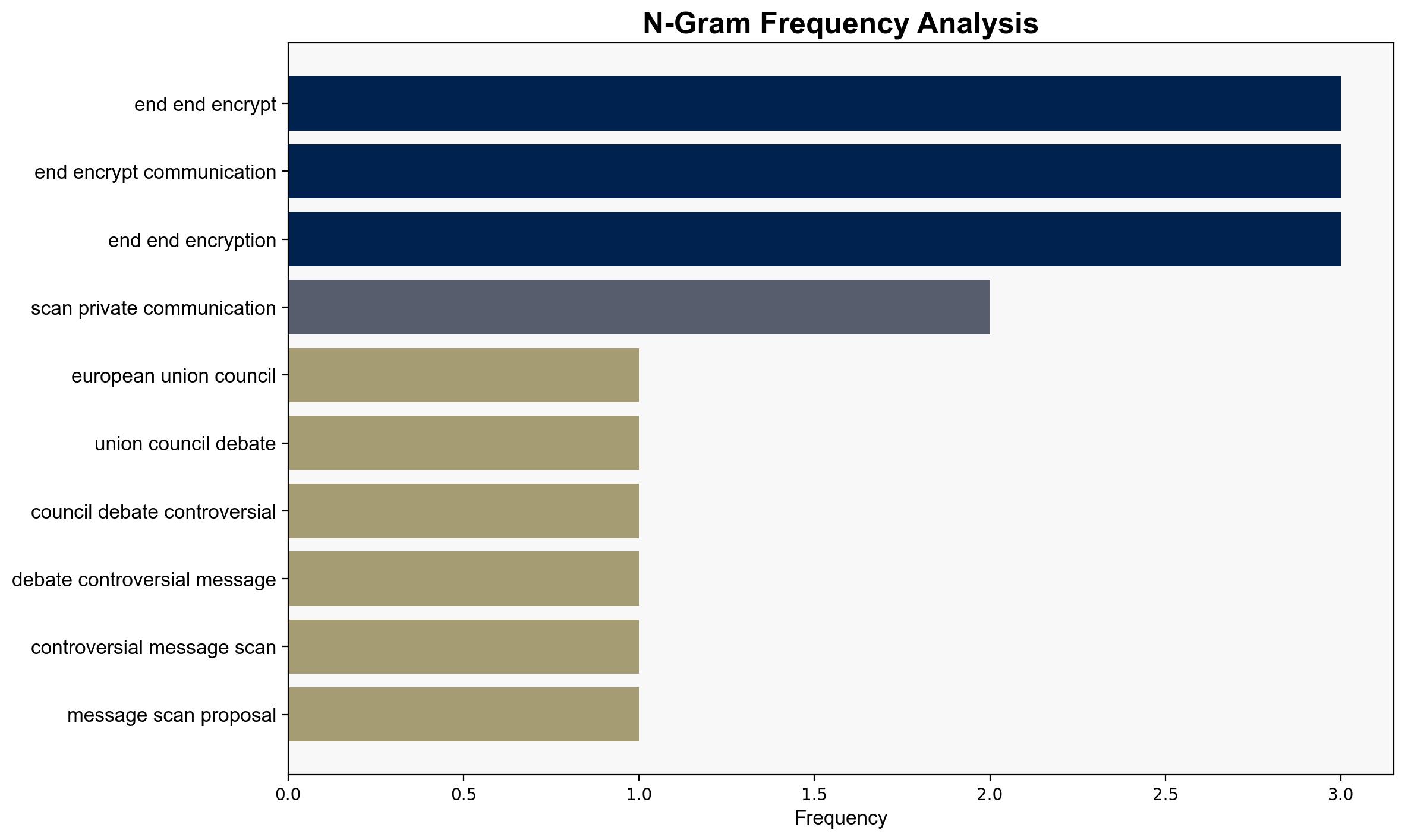Chat Control Is Back on the Menu in the EU It Still Must Be Stopped – EFF
Published on: 2025-09-29
Intelligence Report: Chat Control Is Back on the Menu in the EU It Still Must Be Stopped – EFF
1. BLUF (Bottom Line Up Front)
The proposal for mandatory chat control in the EU, which includes scanning private communications, poses significant privacy and security risks. The most supported hypothesis suggests that the proposal will undermine privacy rights and set a precedent for global surveillance practices. Confidence level: High. Recommended action: Advocate for the rejection of the proposal and promote alternative privacy-preserving measures.
2. Competing Hypotheses
Hypothesis 1: The EU’s chat control proposal is primarily aimed at enhancing security by detecting and preventing abusive material, despite potential privacy concerns.
Hypothesis 2: The proposal is a strategic move towards increased governmental surveillance, compromising privacy and encryption standards under the guise of security.
Using the Analysis of Competing Hypotheses (ACH) 2.0, Hypothesis 2 is better supported due to the emphasis on privacy infringement and the potential for misuse by authoritarian regimes, as highlighted by the EFF and other privacy advocates.
3. Key Assumptions and Red Flags
Assumptions:
– Hypothesis 1 assumes that the primary motivation is security enhancement without ulterior motives.
– Hypothesis 2 assumes that the proposal will lead to widespread surveillance and erosion of privacy rights.
Red Flags:
– The claim that end-to-end encryption will remain intact despite scanning contradicts the fundamental principles of encryption.
– The lack of clear safeguards against misuse by governments raises concerns about potential overreach.
4. Implications and Strategic Risks
The implementation of chat control could lead to:
– Erosion of trust in digital communication platforms, affecting user behavior and platform viability.
– A precedent for other regions to adopt similar surveillance measures, leading to global privacy degradation.
– Increased tension between privacy advocates and governmental authorities, potentially escalating into legal and political conflicts.
5. Recommendations and Outlook
- Engage in diplomatic efforts to highlight the privacy risks and advocate for alternative solutions that do not compromise encryption.
- Encourage public discourse and transparency regarding the implications of the proposal.
- Scenario-based projections:
- Best Case: The proposal is rejected, and privacy-preserving security measures are developed.
- Worst Case: The proposal is implemented, leading to widespread surveillance and privacy erosion.
- Most Likely: Ongoing debate and potential modifications to the proposal, with partial implementation.
6. Key Individuals and Entities
– Danish Presidency of the EU Council
– European Union Council
– Electronic Frontier Foundation (EFF)
7. Thematic Tags
national security threats, cybersecurity, counter-terrorism, regional focus





